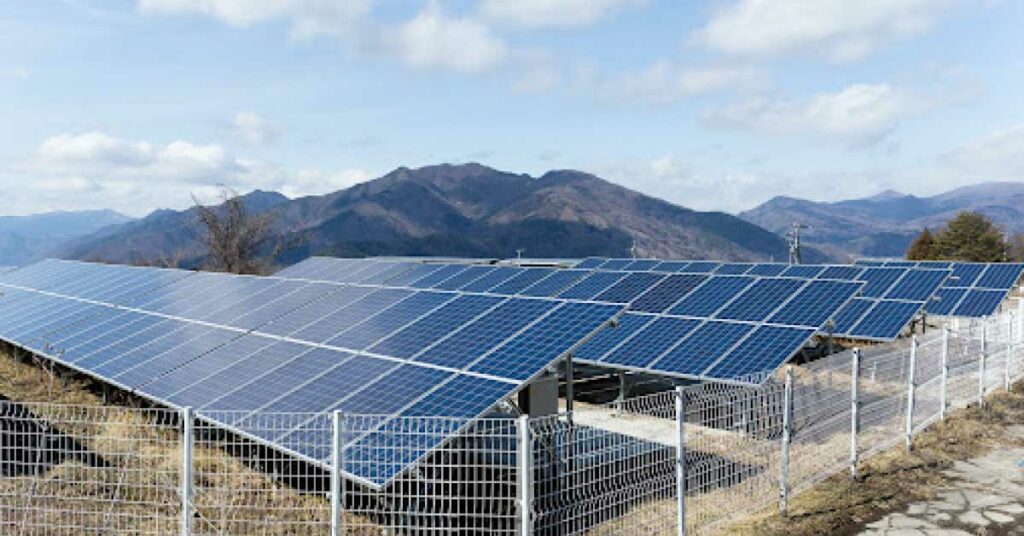The government of Iraq authenticated a deal with POWERCHINA, on 25 August 2021, to install solar power plants with a capacity of 2,000 megawatts. The initial stage of the project is predicted to render 750 megawatts of energy.
Iraq’s principal power grid generates power that suffers from several hours of power cut every day, throughout the year. The summer months agonize people with even worse conditions of power. This proves to be inefficient as the region suffers from hot summer temperatures that shoot up to 50 degrees Celsius. Households usually rely on air conditioning to combat summer fury and power cuts prove to make life uncomfortable.
POWERCHINA (Power Construction Corporation of China) was created in September 2011. The company delivers a wholesome and all-inclusive range of services, namely – planning, investigation, designing, civil construction works, and manufacturing services. The major fields of focus are those of hydropower, new energy, infrastructure, and thermal power. POWERCHINA envisions itself to become the leading organization in the domain of renewable energy and the advancement of hydropower resources.
POWERCHINA uplifts Iraq in the domain of renewable solar energy
State-owned POWERCHINA and the Iraqi government have joined hands to advance towards setting up 2GW of solar power plants. The second-largest OPEC producer is looking to minimize its reliability over imports of electricity from Iran.
Phase one of the project will involve POWERCHINA developing a 750MW capacity. No further details were disclosed regarding the same.
Iraq’s strategic partner, the United States of America, has been increasing pressure on the former to dissuade itself from gas and electricity imports from Iran. The US government has been granting Iraq renunciations since 2018 to continue the importing of Iranian electricity, owing to the deficiency of domestic capacity.
Iran’s recurrent supply of gas and electricity has led to an extensive shortage of energy in Iraq this summer. This happened at a time when the temperature was mounting to 50 degrees Celsius.
Iraq is also facing billions of dollars worth of debt to Tehran, Iran, owing to the US sanctions of an economic embargo in the latter city. This obscure Baghdad’s capacity to close its debts without the risk of financial consequences.
The quandary of gas flaring
Iraq has been overly contingent over Iranian resources of energy and its means of power production through gas flaring has come to a major cessation. Despite the persistent supply of gas from Iran, the quandary of decreased power generation is unlikely to subside soon.
According to the World Bank, Iraq followed Russia and emerged as the world’s second-worst gas flaring nation. The nation is said to have burnt approximately 17.37 billion cubic meters of gas in the year 2020. The World Bank reports have indicated that Iraq has been stuck in this position since 2016.
The financially broke and politically shambled Iraq has been sluggish to procure gas. Owing to its complicated alliance with Iran and the financial problems spreading in the country, Iraq’s power over its own country has been minimized. The POWERCHINA establishment can prove to ease power back into Iraq and minimize the country’s dependence on Iranian imports.
Regular outbreaks on power lines and towers, accountable to the burgeoning Islamic State, have also aggravated Iraq’s power deficiencies.
Other Solar projects in the pipeline
Iraq has also authenticated renewable energy contracts this year with TotalEnergies and Masdar, which are the renewable energy division of Abu Dhabi’s self-governing wealth fund Mubadala Investment Company.
Iraq signed a deal with TotalEnergies to install a 1,000 MW solar power plant.
Iraqi bureaucrats have indicated that the arrangement with Masdar would help escalate the country’s target of achieving 20%-25% of the energy produced from renewables. This would mean that approximately 10-12 GW of energy will be produced from renewables by the year 2030.
Iraq has also been in the quest for importing power resources from Saudi Arabia, Turkey, Jourdan, and the Gulf Cooperation Council.
